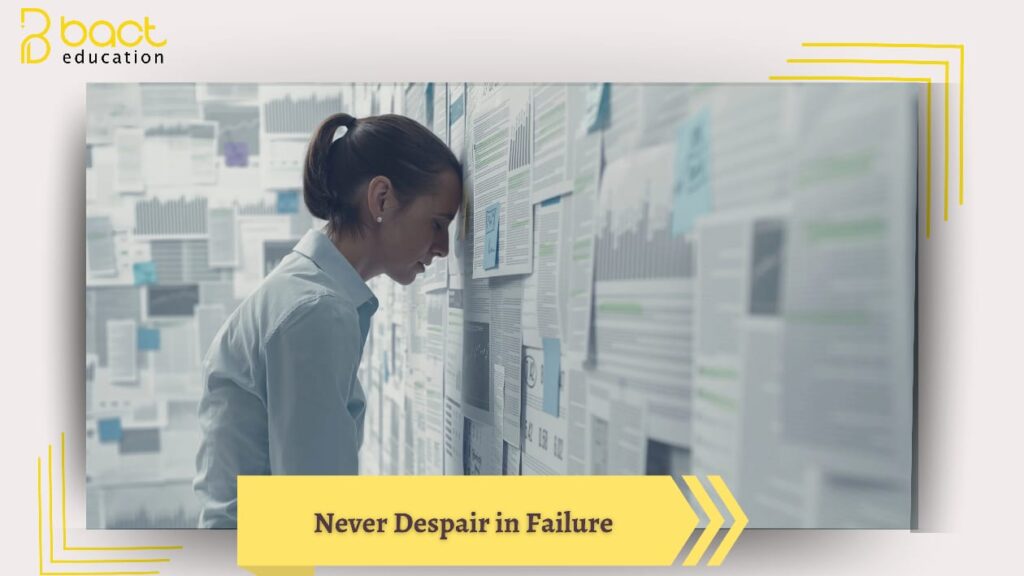: How to Avoid Hopelessness and Build Success from the Rubble of Failed Experiences?**
**Introduction:**
Failure is often seen as the enemy of success, that bitter feeling that overshadows the self when a desired goal is not achieved. But the deeper truth is that failure is not an enemy; it is a harsh but wise teacher. True success is not built solely on a series of consecutive victories but is erected on a solid foundation of lessons learned from failure. The key to real progress lies in how we respond to these temporary defeats and our refusal to despair.
**1. Failure is an Event, Not an Identity:**
The first step to avoiding despair is to separate failure as an event from your personal identity. Saying “I failed in this project” is fundamentally different from saying “I am a failure.” The first describes a temporary and changeable situation, while the second is a fixed label attached to the self. Remember that every successful person has experienced failures; the difference is that they did not allow them to define who they are.
**2. Failure is an Invaluable Source of Learning:**
Behind every failed attempt lies a treasure of lessons and insights. Instead of wallowing in frustration, ask yourself: What did this failure teach me? What can I do differently next time? Turn failure into a laboratory for trial and error. The path to success is often paved with these “mistakes” that guide you toward the right strategy.
**3. Redefining Success and Failure:**
Sometimes, despair comes from our narrow definition of success. Perhaps you didn’t achieve the primary goal, but you gained new skills, expanded your network, or identified your weaknesses. These are all gains. Success is a journey, not a single destination. Celebrate small progress and continuous learning, even if you haven’t reached your ultimate goal yet.
**4. The Story of Thomas Edison: The Ultimate Model of Perseverance:**
When the great inventor Thomas Edison was asked how he felt after thousands of failed attempts to invent the electric light bulb, he replied, “I have not failed. I’ve just found 10,000 ways that won’t work.” This mindset is the essence of resisting despair. He saw each “failure” as a necessary step bringing him closer to the solution. The number of attempts didn’t matter; his determination not to give up did.
**5. Self-Care and Positive Self-Talk:**
After failure, it’s natural to feel disappointed or sad. The important thing is not to let these feelings turn into permanent despair. Take care of your mental and physical health. Talk to yourself kindly, as if you were talking to a close friend. Avoid negative self-talk that fuels despair, and replace it with phrases like, “This is just a setback, and I will try again” or “I am capable of learning from this and moving on.”
**6. Seeking Support and Drawing Inspiration from Others’ Stories:**
Don’t go through the experience of failure alone. Talk to your mentor, supportive friends, or family. You will find that many of them have had similar experiences and will support you. Additionally, read the biographies of people you admire. You will find that failure was a significant part of their journeys, but they did not despair.
**Conclusion:**
Despair is a choice, not an inevitability. Failure is an event in your journey, and it is often a sign that you dare to try and step out of your comfort zone. Have the courage to fail, and the greater courage to get up again. Use failure as fuel to continue, not as an excuse to stop. Remember, the night is darkest just before the dawn. Success that comes after a struggle with failure is the most enduring and magnificent.

